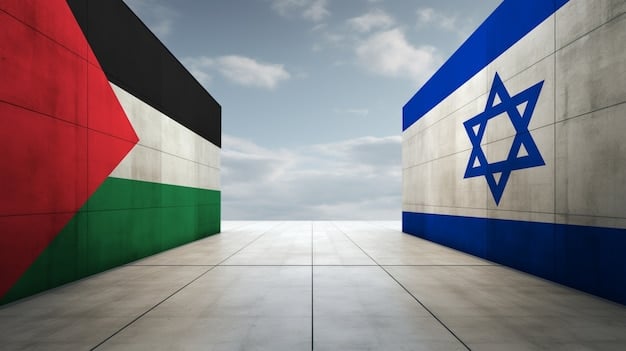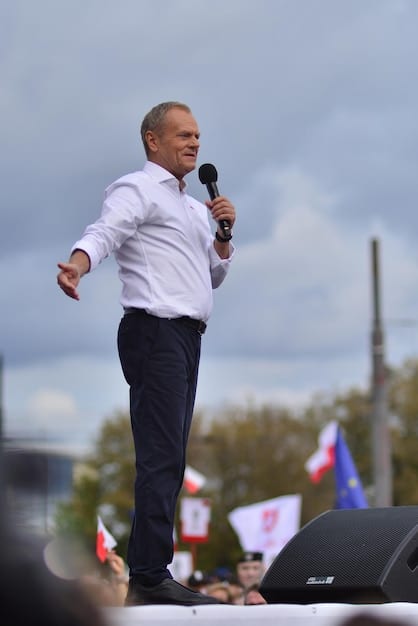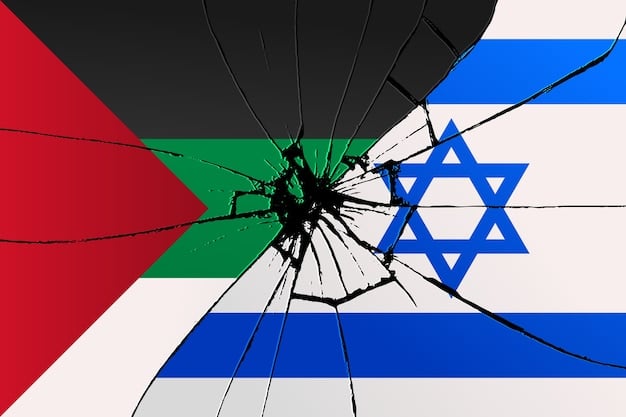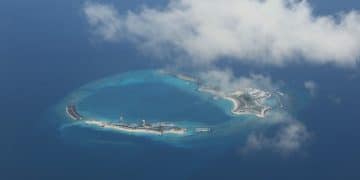The US Role in the Israeli-Palestinian Conflict: A Path Forward

The US role in the Israeli-Palestinian conflict has been a complex and long-standing issue, involving diplomatic, financial, and military support, with a path forward requiring a balanced approach that promotes dialogue, security for both sides, and a commitment to a two-state solution.
Navigating the intricate dynamics of the Israeli-Palestinian conflict, the US Role in the Israeli-Palestinian Conflict: A Path Forward plays a crucial and often debated part. Understanding the historical context and current strategies is essential for anyone seeking to grasp the complexities of this ongoing situation.
Understanding the Historical Context of US Involvement
The United States has been deeply involved in the Israeli-Palestinian conflict for decades. This involvement stems from a mix of strategic interests, moral considerations, and domestic political factors.
Early Involvement and the Creation of Israel
The US played a significant role in the lead-up to the creation of Israel. President Truman’s administration recognized the newly formed state in 1948, setting the stage for a lasting relationship.
The early years focused on humanitarian aid and support for Israel’s development. The US saw Israel as a strategic ally in the Middle East during the Cold War.
The Oslo Accords and the Pursuit of Peace
The Oslo Accords in the 1990s marked a high point in US-brokered peace efforts. These agreements aimed to create a framework for resolving the conflict through negotiations.
- The US hosted numerous rounds of talks between Israeli and Palestinian leaders.
- Bill Clinton played a particularly active role, trying to bridge the gaps between the two sides.
- Despite initial progress, the Oslo Accords ultimately failed to deliver a lasting peace.
- The assassination of Yitzhak Rabin and increased violence contributed to the breakdown of the process.
The historical context of US involvement underscores the complexities and challenges of finding a resolution to the Israeli-Palestinian conflict. From its early support of Israel to its later efforts to broker peace, the US has consistently been a key player in the region.

The Current US Strategy and Objectives
The current US strategy in the Israeli-Palestinian conflict is multifaceted, aiming to balance competing interests and promote stability in the region.
Maintaining Security and Stability
A primary objective of the US is to ensure the security of Israel. This includes providing military aid and supporting Israel’s right to defend itself.
The US also seeks to prevent escalation of violence and maintain stability in the broader Middle East. This involves working with regional partners to counter threats and promote diplomatic solutions.
Promoting a Two-State Solution
The US officially supports a two-state solution, where Israel and Palestine coexist peacefully as independent states. However, the path to achieving this goal remains uncertain.
- The US advocates for direct negotiations between Israelis and Palestinians.
- It also calls for an end to settlement construction in the West Bank.
- The US provides financial assistance to the Palestinian Authority, conditional on reforms and non-violence.
- Recent administrations have shifted their approach, with some focusing more on economic incentives and normalization deals.
The US strategy reflects a desire to balance its commitment to Israel’s security with its support for a negotiated settlement that addresses Palestinian aspirations.
Challenges and Criticisms of US Policy
US policy in the Israeli-Palestinian conflict has faced numerous challenges and criticisms from various perspectives.
Perceived Bias Towards Israel
One of the main criticisms is that the US is perceived as being biased towards Israel. This perception is fueled by the significant military and financial aid provided to Israel.
Detractors argue that this bias undermines the US’s credibility as a neutral mediator and hinders the prospects for a fair resolution.
Impact of Domestic Politics
Domestic politics in the US also play a significant role in shaping policy towards the conflict. Support for Israel is strong among both Democrats and Republicans, influencing the political calculus.
- Lobbying groups and advocacy organizations exert considerable influence on lawmakers.
- Public opinion and media coverage also shape the political landscape.
- Political considerations can sometimes outweigh strategic or moral imperatives.
The Role of International Law
Critics also argue that US policy often disregards international law and resolutions. For example, the US has consistently vetoed UN Security Council resolutions critical of Israel.
This stance has led to accusations of double standards and a lack of commitment to international norms.

Areas for Improvement in US Policy
To enhance its effectiveness in promoting a resolution to the conflict, the US could focus on several areas for improvement.
Promoting Economic Development in Palestine
Greater efforts to promote economic development in Palestine could help improve living conditions and reduce frustration. This includes supporting small businesses and infrastructure projects.
Economic empowerment can also strengthen the Palestinian Authority and reduce its dependence on external aid.
Re-engaging with Regional and International Partners
The US should also re-engage more actively with regional and international partners. This includes coordinating with the European Union, Arab states, and the United Nations.
- A multilateral approach can bring diverse perspectives and resources to the table.
- It can also help build consensus and exert greater pressure on the parties to negotiate.
Focusing on Confidence-Building Measures
Small-scale confidence-building measures can help create a more conducive environment for negotiations. This includes promoting people-to-people exchanges and joint projects.
These initiatives can help break down stereotypes and build trust between Israelis and Palestinians.
A Path Forward: Key Steps and Considerations
Charting a path forward requires a comprehensive approach that addresses the core issues and involves multiple stakeholders.
Reinvigorating the Peace Process
The first step is to reinvigorate the peace process. This requires strong leadership from the US and a willingness to engage with all parties.
The US should appoint a special envoy with a clear mandate to facilitate negotiations and mediate disputes.
Addressing Core Issues
The peace process must address the core issues of borders, security, refugees, and Jerusalem. These issues are highly sensitive and require creative solutions.
- Border negotiations should be based on the 1967 lines with mutually agreed land swaps.
- Security arrangements should ensure the safety of both Israelis and Palestinians.
- The refugee issue should be addressed through compensation and resettlement options.
- Jerusalem should be a shared capital with arrangements that respect the religious rights of all.
Supporting Civil Society
Supporting civil society organizations is crucial for building a culture of peace. These organizations can promote dialogue, reconciliation, and mutual understanding.
The US should provide funding and technical assistance to these groups to enhance their capacity and impact.
The Role of International Community
The international community plays a critical role in supporting and reinforcing the peace process. A coordinated effort can bring greater pressure and resources to bear.
The United Nations
The United Nations can provide a framework for negotiations and monitor compliance with agreements. The UN Security Council can pass resolutions to endorse peace plans and impose sanctions if necessary.
The European Union (EU)
The EU can offer economic incentives and technical assistance to support the peace process. The EU can also play a role in monitoring human rights and promoting good governance.
Regional Players
Regional players such as Egypt, Jordan, and Saudi Arabia can exert influence on the parties and help create a conducive environment for negotiations. These countries have a vested interest in stability in the region and can play a positive role.
| Key Point | Brief Description |
|---|---|
| 🤝 Peace Process | Reinvigorating negotiations for a two-state solution. |
| 💰 Economic Support | Promoting economic development in Palestinian territories. |
| 🕊️ Confidence Building | Implementing measures to build trust between both parties. |
| 🌍 Global Collaboration | Working with international partners for a coordinated approach. |
FAQ
▼
The US officially supports a two-state solution, advocating for direct negotiations between Israelis and Palestinians, while maintaining a strong alliance with Israel.
▼
The US provides approximately $3.8 billion in military aid annually to Israel as part of a long-term security agreement, further solidifying the alliance.
▼
The US brokered and hosted the Oslo Accords in the 1990s, aiming to create a framework for resolving the conflict through negotiations, with Bill Clinton playing a key role.
▼
Common criticisms include perceived bias towards Israel, disregard for international law, and the impact of domestic politics on shaping policy decisions.
▼
The US can improve its policy by promoting economic development in Palestine, re-engaging with international partners, and focusing on confidence-building measures to foster trust.
Conclusion
The US role in the Israeli-Palestinian conflict is complex and multifaceted, requiring a balanced approach that acknowledges the legitimate concerns and aspirations of both sides. By reinvigorating the peace process, promoting economic development, and fostering confidence-building measures, the US can play a crucial role in achieving a lasting and just resolution to this long-standing conflict.





